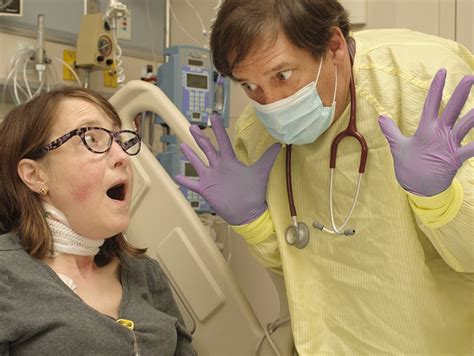
Speaking in outdated slang might be aging you, and certain phrases could make you sound older than you are, according to a recent article. Avoiding terms like “groovy,” “far out,” and other dated expressions can help maintain a more current and relevant communication style. The article highlights 13 phrases that may be best left in the past for those over 60 aiming to stay contemporary.
Staying current with language is about more than just appearing youthful; it’s about effective communication across generations. Language evolves rapidly, and clinging to outdated expressions can create a barrier in understanding and connection. The list serves as a guide for those wishing to avoid linguistic pitfalls that might inadvertently reveal their age or, more importantly, hinder their ability to connect with younger audiences. The intention is not to shame or criticize, but rather to offer practical tips for refining communication skills in an ever-changing world.
Here are the 13 phrases to consider retiring, and why:
-
“Groovy”: This quintessential term from the 1960s and 70s, used to express something is pleasing or excellent, now sounds distinctly retro. While it might evoke nostalgia, in modern conversation, it can signal a disconnect from contemporary culture. According to the article, replacing it with terms like “cool,” “awesome,” or “great” would be more in line with current usage.
-
“Far Out”: Similar to “groovy,” “far out” was another popular expression of approval or amazement during the same era. Its use today carries the same risk of sounding dated. The article suggests using alternatives such as “amazing,” “incredible,” or “unbelievable” to convey the same sentiment without the retro vibe.
-
“Catch you later”: While seemingly harmless, “Catch you later” has largely been replaced with more concise and modern alternatives like “See you,” “Bye,” or “Later.” The older phrase isn’t inherently wrong, but its frequency has diminished, making it sound somewhat old-fashioned in contemporary conversation.
-
“Hip”: Once a go-to term for describing something fashionable or trendy, “hip” now sounds decidedly un-hip. Its usage peaked decades ago, and it has since been supplanted by words like “trendy,” “stylish,” or “cool.” Using “hip” can inadvertently signal that you’re out of touch with current trends.
-
“What’s the deal?”: Although this phrase has seen occasional resurgence, particularly in comedy, its widespread use has waned. It’s often perceived as a bit theatrical or affected. Simpler alternatives like “What’s up?” or “What’s happening?” are generally preferred in everyday conversation.
-
“The bee’s knees”: This flapper-era expression, meaning something excellent or of high quality, is now almost exclusively used ironically or humorously. Using it seriously could lead to confusion or amusement. Modern equivalents include “the best,” “top-notch,” or “excellent.”
-
“Catch some rays”: While the activity of sunbathing remains popular, the phrase “catch some rays” sounds dated. More common alternatives include “soak up the sun,” “get some sun,” or simply “sunbathe.”
-
“Don’t have a cow”: Popularized by Bart Simpson in the late 1980s and early 1990s, this expression meaning “don’t overreact” has faded from common usage. While some might recognize the reference, it can sound out of touch to those unfamiliar with the pop culture context. More current alternatives include “Don’t freak out,” “Don’t get upset,” or “Calm down.”
-
“As if!”: Another phrase popularized in the 1990s, particularly by the movie Clueless, “As if!” expresses disbelief or disagreement. While it might still be used ironically, its widespread use has diminished, making it sound dated in most contexts. Alternatives include “No way!” “I don’t think so,” or simply expressing your disagreement directly.
-
“Radical”: Often shortened to “rad,” this term was popular in the 1980s and 90s to describe something excellent or exciting. While still understood, it now carries a strong retro association. “Awesome,” “amazing,” or “fantastic” are more contemporary substitutes.
-
“Gnarly”: Similar to “radical,” “gnarly” was another slang term used to describe something cool or excellent, particularly in surfing and skateboarding culture. Its use outside of those specific contexts can sound forced or outdated. Again, “awesome,” “amazing,” or “fantastic” offer more current alternatives.
-
“Bogue/Bogus”: Mainly used to describe something as fake, imitation, or worthless. While still understood, it’s use is declining rapidly, mostly substituted with words such as “fake”, “false”, “terrible” or “rubbish”.
-
“That’s the way, aha aha, I like it, aha aha”: Taken from a KC and the Sunshine Band song, this expression is obviously outdated. To express your approval, there are many more up to date means such as: “That’s perfect, I like that!”
The article emphasizes that language is constantly evolving, and being mindful of the phrases we use can help us communicate more effectively and avoid unintentional ageism. While there’s nothing inherently wrong with using these phrases, being aware of their connotations and how they might be perceived is crucial for effective communication. Staying current with language trends demonstrates adaptability and a willingness to connect with others, regardless of age. It’s about choosing the right words to convey your message clearly and respectfully in any given situation. It doesn’t mean eliminating these words from your vocabulary entirely; rather, it suggests using them judiciously and being aware of their potential impact on your audience.
The broader point is that effective communication is about adapting to your audience. While using these phrases among peers might be perfectly acceptable and even nostalgic, using them with younger generations or in professional settings could create a disconnect. The article serves as a helpful reminder to be mindful of our language choices and to strive for clarity and relevance in our communication.
Ultimately, the goal is not to erase one’s personal history or style, but rather to enhance communication skills and avoid unintentional misinterpretations. By being aware of these linguistic nuances, individuals can bridge generational gaps and foster more meaningful connections.
In-Depth Analysis and Context
The evolution of language is a continuous process, shaped by cultural shifts, technological advancements, and social trends. Slang terms and colloquialisms, in particular, often have a limited lifespan, gaining popularity rapidly and then fading into obscurity as new expressions emerge. This phenomenon is not unique to any specific generation; each cohort develops its own unique linguistic markers that distinguish it from others. However, as individuals age, they may find themselves clinging to phrases that were once common but are now considered outdated.
This can create a subtle but significant barrier in communication, particularly with younger generations who may not be familiar with these older expressions. While it’s important to respect individual linguistic styles and avoid imposing arbitrary rules on language use, it’s equally important to be aware of how our language choices might be perceived by others.
The article’s focus on phrases to “retire after 60” is not intended to be ageist or prescriptive. Rather, it’s a practical guide for individuals who wish to maintain a contemporary communication style and avoid unintentional misinterpretations. The list is not exhaustive, and there are certainly situations where using these phrases might be perfectly appropriate or even humorous. However, in general, being mindful of the potential impact of our language choices can help us communicate more effectively and build stronger relationships with people of all ages.
Generational Differences in Language
One of the key factors driving language evolution is generational change. Each generation develops its own unique slang terms, idioms, and communication styles, often as a way of establishing its identity and differentiating itself from previous generations. These linguistic markers can become deeply ingrained in a generation’s collective consciousness, shaping the way its members communicate with each other and with the world around them.
However, as generations age, their language patterns may become less relevant to younger generations who have developed their own distinct linguistic styles. This can create a gap in understanding and communication, particularly when older individuals continue to use phrases and expressions that are no longer in common use.
For example, the phrases listed in the article – “groovy,” “far out,” “hip,” and “radical” – were all popular slang terms during the mid-to-late 20th century. While many individuals over 60 may still be familiar with these phrases, younger generations may not recognize them or may perceive them as outdated or even comical.
This doesn’t mean that older individuals should abandon their unique linguistic styles or try to imitate the language of younger generations. However, it does mean that they should be aware of the potential for miscommunication and be willing to adapt their language choices to suit the context and the audience.
The Impact of Technology on Language
In addition to generational change, technology has also played a significant role in shaping the evolution of language. The rise of the internet, social media, and mobile devices has accelerated the pace of linguistic change, creating new forms of communication and new slang terms that spread rapidly across the globe.
For example, the emergence of texting and instant messaging has led to the development of abbreviated forms of language, such as “LOL,” “OMG,” and “BRB.” These abbreviations are widely used in online communication, but they may not be familiar to older individuals who did not grow up with these technologies.
Similarly, social media platforms like Twitter and Instagram have fostered the creation of new slang terms and hashtags that are used to express ideas, emotions, and trends. These terms often have a limited lifespan, gaining popularity quickly and then fading into obscurity as new trends emerge.
The rapid pace of technological change can make it challenging for individuals to keep up with the latest linguistic trends. However, by staying informed about new technologies and communication styles, individuals can avoid unintentional misinterpretations and communicate more effectively in the digital age.
The Importance of Context and Audience
Ultimately, the choice of whether or not to use a particular phrase or expression depends on the context and the audience. In some situations, using an older phrase might be perfectly appropriate or even humorous. For example, using the phrase “groovy” at a retro-themed party could be a fun and playful way to evoke a sense of nostalgia.
However, in other situations, using an older phrase could be perceived as out of touch or even disrespectful. For example, using the phrase “hip” in a professional setting could undermine your credibility and make you seem less competent.
The key is to be aware of the potential impact of your language choices and to adapt your communication style to suit the specific situation and the audience. This requires empathy, sensitivity, and a willingness to learn about different communication styles.
Tips for Staying Current with Language
Here are some tips for staying current with language and avoiding unintentional misinterpretations:
-
Read widely: Pay attention to how language is used in books, newspapers, magazines, and online publications.
-
Listen to younger people: Pay attention to the language used by younger people in your life, such as your children, grandchildren, or colleagues.
-
Watch television and movies: Pay attention to the language used in television shows and movies, particularly those that are popular with younger audiences.
-
Use social media: Follow social media accounts that focus on language and culture, such as dictionaries, style guides, and meme accounts.
-
Ask questions: If you’re unsure about the meaning of a particular phrase or expression, don’t be afraid to ask someone.
-
Be open to change: Be willing to adapt your language choices to suit the context and the audience.
By following these tips, individuals can stay current with language and communicate more effectively with people of all ages.
Conclusion
The article’s list of phrases to retire after 60 is not meant to be a rigid set of rules, but rather a helpful guide for those who wish to enhance their communication skills and avoid unintentional misinterpretations. Language is constantly evolving, and being mindful of our language choices can help us build stronger relationships with people of all ages. By staying current with language trends, we can demonstrate adaptability, respect, and a willingness to connect with others in a meaningful way. It’s about choosing the right words to convey your message clearly and respectfully in any given situation. The ultimate goal is to foster better communication and understanding across generations.
Frequently Asked Questions (FAQ)
-
Is it ageist to suggest that older people should stop using certain phrases?
- No, the intention is not to be ageist. The goal is to help individuals communicate more effectively and avoid unintentional misinterpretations. Being aware of how certain phrases are perceived by different generations can improve communication. It’s about choosing language that resonates with your audience and ensures your message is understood as intended. The article emphasizes that it’s not about abandoning one’s personal style, but rather enhancing communication skills for better understanding across generations.
-
Does this mean I have to completely change the way I speak?
- Not at all. The article suggests being mindful of the phrases you use, especially in certain contexts. It’s not about erasing your personal style or vocabulary, but about expanding your awareness of how your language might be perceived by others. You can still use these phrases with peers who understand them, but you might consider using more contemporary alternatives when communicating with younger generations or in professional settings. The key is to be adaptable and choose language that promotes clear and effective communication.
-
What if I genuinely like using these phrases?
- If you enjoy using these phrases and they are part of your personal style, there’s no reason to stop entirely. However, it’s helpful to be aware of the potential impact they might have on your audience. Consider the context and the people you’re speaking to. If you’re aiming to connect with a younger audience or in a professional setting, you might choose more contemporary language to ensure your message is received as intended. Ultimately, the goal is effective communication, and that sometimes requires adapting your language to the situation.
-
How can I stay up-to-date with current slang and language trends?
- Staying current with language trends requires active engagement and a willingness to learn. Some helpful strategies include:
- Reading widely: Pay attention to how language is used in books, newspapers, magazines, and online publications, especially those aimed at younger audiences.
- Listening to younger people: Engage in conversations with younger people in your life (children, grandchildren, colleagues) and pay attention to their language.
- Watching television and movies: Watch television shows and movies that are popular with younger audiences.
- Using social media: Follow social media accounts that focus on language and culture, such as dictionaries, style guides, and meme accounts.
- Asking questions: Don’t be afraid to ask about the meaning of a particular phrase or expression if you’re unsure.
- By actively seeking out and observing current language trends, you can stay informed and adapt your communication style as needed.
- Staying current with language trends requires active engagement and a willingness to learn. Some helpful strategies include:
-
Are there any benefits to using older phrases?
- Yes, using older phrases can sometimes evoke nostalgia, create a sense of connection with peers, or add humor to a conversation. In certain contexts, using these phrases can be perfectly appropriate and even appreciated. For example, at a retro-themed event or when speaking with people who share similar cultural references, older phrases can be a fun and engaging way to communicate. The key is to be mindful of the context and the audience and to use your judgment in choosing the language that best suits the situation.









